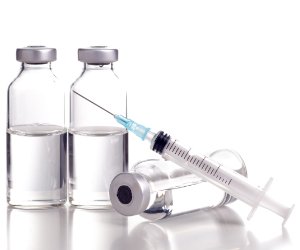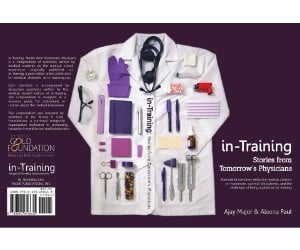
Medical School
Happy New Year from Student Doctor Network! I have always loved the beginning of a ... Read more
Written by: Amy Rakowczyk
Published on: January 5, 2017

Medical
The American Cancer Society estimated that in 2015, there were 1,658,370 new cases of cancer diagnosed in ... Read more
Written by: Brian Wu
Published on: January 4, 2017

Medical
What You Should Know is an ongoing series covering a range of informational topics relevant ... Read more
Written by: Brian Wu
Published on: December 13, 2016

Medical School
Mental health is a topic which is discussed more openly in our society in recent ... Read more
Written by: Brian Wu
Published on: December 5, 2016

Pre-Health
While the American college experience can be a time of great discovery and learning, the ... Read more
Written by: Brian Wu
Published on: November 16, 2016

MCAT
It’s not surprising that one of the questions we’re asked most frequently is, “When should ... Read more
Written by: AAMC Staff
Published on: November 10, 2016

Pre-Health
Don’t miss Part I of this article, which covered how to prepare before the interview and ... Read more
Written by: bluestreaks
Published on: November 2, 2016

Pre-Health
I did 21 interviews. Don’t ask how much it cost because I don’t enjoy thinking ... Read more
Written by: bluestreaks
Published on: November 1, 2016

Pre-Health
Medicine needs a strong core of leadership now more than ever. Medical students and new ... Read more
Written by: Sidney Christiansen
Published on: October 19, 2016

Medical School
I strolled into second year, fresh off the plane from my South American adventures and ... Read more
Written by: Adelle
Published on: October 17, 2016

Post-Bacc
It’s important to remember that as you prepare for and apply to medical school, there ... Read more
Written by: AAMC Staff
Published on: October 13, 2016

MCAT
In an ideal world, the months before an MCAT test date would be exclusively devoted ... Read more
Written by: Cassie Kosarek
Published on: October 12, 2016

Medical School
It is not just nostalgia and excitement that grips me as I am nearing the ... Read more
Written by: Butool Hisam
Published on: October 11, 2016


Medical School
By Amy Rakowczyk One thing is certain during medical school: your medical spouse is going ... Read more
Written by: Amy Rakowczyk
Published on: October 6, 2016

Student Loans
Consider these three questions. First, what is a loan? Second, how is it typically is ... Read more
Written by: Tae Kwan
Published on: October 5, 2016

Pre-Medical
When did you first hear about medical scribes? I first heard the term ‘medical scribe’ ... Read more
Written by: Alyssa Kettler
Published on: October 4, 2016

Medical School
In early 2012, medical students Ajay Major and Aleena Paul started in-Training.org, a website dedicated ... Read more
Written by: Student Doctor Network
Published on: September 29, 2016

Medical School
Republished with permission from here. Earlier in the summer, I was speaking with a friend ... Read more
Written by: Brent Schnipke
Published on: September 28, 2016

















